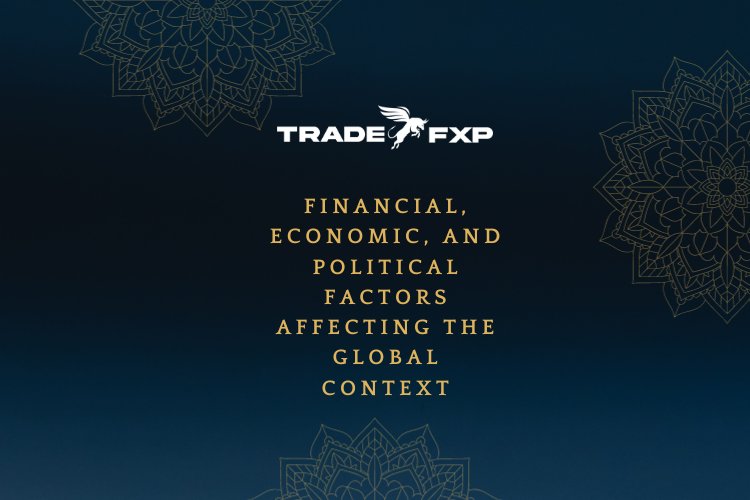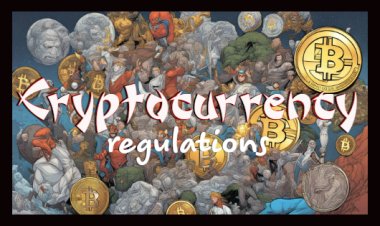Financial, economic, and political factors affecting the global context
This comprehensive guide explores the role of excessive debt, wealth gaps, and the rise of powerful nations in shaping the global financial, economic, and political landscape. The insights gained will help individuals make informed decisions to navigate these uncertain times.

Financial, economic, and political factors affecting the global context: Understanding the global landscape: excessive debt, wealth inequalities, and powerful nations
Excessive debt and money printing, wealth gap conflict, and the rise of big countries like China are influencing the current situation. These historical influences affect finance, economics, and politics.
Money and debt, economic considerations, internal and external conflict, nature, and technology have shaped world events. Understanding these influences can illuminate global events.
Financial instability results from excessive debt and money printing, which devalue assets. Too much debt, record low-interest rates, and asset depreciation caused Silicon Valley Bank's failure. It affects many entities worldwide, not just banks. Individuals, organizations, and governments are at risk from excessive debt.
Populism and wealth inequality fuel internal conflict and polarisation. Social discontent and tensions have increased due to wealth inequality. Many countries have had protests, political division, and disappointment due to this split.
The world is also seeing great nations like China rise. China's tremendous economic growth and technical advances have made it a worldwide force, challenging old nations. This power shift affects global politics, trade, and economics. Navigating the global scene requires understanding the rise of great states and their impact.
Understanding excessive debt, income inequalities, and the rise of powerful states helps people grasp global forces. Understanding these global influences enables educated decision-making and proactive tactics to meet challenges and opportunities.
Global factors and financial stability
The rise of powerful states, excessive debt, and income discrepancies affect global financial stability. Understanding these ramifications can help individuals and businesses manage the present economic landscape.
As noted, excessive debt and money printing affect the economy. High debt and printing money to finance spending can cause inflation and currency depreciation. This undermines financial market stability and consumer purchasing power. As previous economic crises have shown, excessive debt can leave economies vulnerable to financial catastrophes.
Wealth differences, another global financial stability factor, can worsen economic inequality. Large-scale poverty and resource scarcity can cause social unrest and economic instability. Long-term financial stability requires wealth gap reduction and equitable growth policies.
Rising powers like China can also affect global financial stability. These nations may change the global economy and challenge conventional powers as economic powerhouses. Economic power shifts affect trade, currency prices, and global financial institutions. To avoid financial disruptions, these developments must be continuously monitored and analysed.
Given these ramifications, people and organisations should take precautions to guarantee financial stability. Diversification helps manage risk and mitigate global shocks to financial assets. Diversifying investments across asset classes, sectors, and locations reduces risk and increases stability during economic downturns.
Investments with uncorrelated returns are also important. Uncorrelated returns are investments that perform independently of stock markets or standard financial instruments. Alternative investments, including real estate, commodities, and hedge funds, can provide stability and diversity during market instability.
Individuals and organisations may navigate the obstacles and grasp opportunities of the ever-changing global economic landscape by recognising the effects of global forces on financial stability and executing solid tactics.
Exploring historical cycles and patterns
Society and economies have followed cycles and patterns throughout history. Understanding these historical patterns can help people make informed financial and personal decisions and understand the global context.
Empire rise and fall is a cycle. Empires have risen and fallen throughout history. Ancient civilizations, including the Roman, Persian, and Ottoman Empires, rose and fell in this pattern. Understanding this cycle helps illuminate potential obstacles and opportunities as global powers shift and new powers emerge.
War and strife are another historical trend. History has seen periods of international tension and war, then peace. Geographical or ideological differences can lead to conflicts. Studying historical battles can help people understand the causes and effects of current geopolitical tensions, such as the Middle East conflict or the rivalry between major world powers.
Reserve currency history provides valuable insights into the world economy. The collapse of reserve currencies like the British Pound emphasizes the need for financial strength, debt reduction, and economic reform. As highlighted in earlier chapters, the US dollar's possible fall as a reserve currency emphasizes the importance of currency diversification and understanding global financial system changes.
Recognizing these cycles and historical trends helps people make informed decisions and adjust their methods. In uncertain times, security, returns, and geography must be balanced. History guides us and teaches us how to traverse the global world.
Finally, understanding history is essential to understanding and planning for the future. Recognizing recurring cycles and historical patterns can help people understand the global context and navigate financial, economic, and political influences. Knowing this, people can make smart choices that reduce risks and maximise opportunities in a changing world.
Financial crisis asset protection: diversification and uncorrelated returns
Financial crises make asset protection a major priority for people and corporations. Financial instability can result from excessive debt, wealth gaps, and the growth of powerful nations, making asset protection and risk reduction techniques vital.
Diversification helps protect investments in crises. Diversification entails investing in several asset classes, industries, and geographies. Diversifying reduces risk and may mitigate losses by reducing exposure to any particular investment or market. When one asset class or area declines, others may do well, maintaining portfolio stability.
Diversification alone may not work. Investments with uncorrelated returns are also important. Investments with a low correlation to equities and bonds are called uncorrelated returns. These investments are advantageous amid market instability since they perform irrespective of market developments.
Uncorrelated assets include gold, precious metals, real estate, commodities, and hedge fund strategies. These assets often function differently than standard financial assets, providing stability and possible profits even in turbulent markets. Uncorrelated assets in a diversified portfolio can reduce global financial asset risk.
Additionally, investment portfolios must be monitored and adjusted to market conditions. Regular portfolio evaluations and rebalancing help keep investments in line with goals and risk tolerance. During financial crises, people can manage risk and safeguard their investments by being watchful and making adjustments.
Asset protection amid a financial crisis demands strategic thinking and proactive steps. Diversifying and adding uncorrelated assets to investment portfolios reduces risk and maintains stability. Monitoring and modifications can help navigate the changing economic landscape and protect wealth from global pressures that may threaten financial stability.
The changing international order: the US dollar's likely fall as a reserve currency
The US dollar has been the world's reserve currency for decades, ensuring financial stability and trust. However, the current global landscape signals a potential world order upheaval, raising issues about the US dollar's reserve currency status.
Several variables fuel conjecture regarding the US dollar's reserve currency demise. The rise of large nations like China is a factor. As China's economy grows and asserts its worldwide importance, the yuan may challenge the US currency. The strong economic growth and rising Yuan commerce indicate a currency shift in favour of China.
The US dollar may also fall due to geopolitical concerns and trade conflicts. Russia and Iran are exploring payment systems outside the US-dominated banking infrastructure due to US financial sanctions. These alternatives reduce worldwide reliance on the US dollar and impair its reserve currency position.
As governments diversify their foreign exchange reserves, speculation increases. Central banks are considering retaining a more diverse basket of currencies as reserves to reduce their currency dependence. This tendency challenges the US dollar's dominance and changes the international monetary environment.
These factors are essential, but any meaningful change in the US dollar's standing as a reserve currency would take time. Global investors like the dollar due to the US economy's size, depth, and stability. The probable loss of the US dollar as a reserve currency emphasizes the necessity for people, businesses, and governments to diversify their currency holdings and adapt to a changing global economy.
Finally, the world community is discussing the US dollar's likely fall as a reserve currency. The growth of other powerful nations, geopolitical tensions, and diversification fuel speculation. In a dynamic global economy, individuals and organizations must comprehend the potential changes in the international monetary environment to adapt and make educated decisions. The future of the US dollar as a reserve currency is questionable.
Historical lessons: The British Pound decline
History can illuminate the effects and lessons of the decline of reserve currency. The collapse of the British Pound provides crucial lessons for understanding and navigating the shifting global economic landscape.
The collapse of the British Pound as a reserve currency teaches several lessons. Currency stability and value depend on financial strength first and foremost. Overspending, debt, and economic imbalances weaken currencies and hurt their worldwide standing. To minimize currency falls, nations must emphasize responsible fiscal policies and avoid excessive debt.
The fall of the British Pound taught us that economic issues require bipartisan solutions. Long-term, sustainable economic solutions frequently transcend political disagreements. To solve economic problems and preserve a stable currency, bipartisan cooperation is essential.
Financial sanctions should not be weaponized. The fall of the British Pound shows that the political use of financial penalties can backfire. Financial sanctions can cause retribution, economic instability, and currency instability. Long-term currency stability benefits from discussion and collaboration-focused diplomacy.
Addressing societal concerns like education and economic inequality helps prevent currency collapses. Focusing on social development and inclusive growth boosts economic resilience. It spreads economic growth's benefits and decreases social turmoil, which can lower currency values.
The falling British Pound emphasizes the need for robust and diverse trading connections. Overreliance on a few trading partners can render a currency vulnerable to external shocks and trade disruptions. Actively exploring new trade possibilities and diversifying trade links can boost economic resilience and currency stability.
Studying the collapse of the British Pound can help us comprehend and navigate global economic shifts. Countries can protect their currencies and adapt to the changing global environment by prioritizing financial strength, fostering bipartisan cooperation, avoiding financial sanction weaponization, addressing social issues, and diversifying trade relationships.
Thinking about disagreement and open-minded dialogue to address social issues
Today, tackling social issues and solving complicated problems involves thoughtful disagreement and open-minded dialogue. Global pressures, including excessive debt, wealth inequalities, and the rise of powerful states, highlight societal issues that require thought and collaborative problem-solving.
The thoughtful disagreement involves respectful and constructive debates where people express their opinions and criticize ideas. It deepens comprehension of complex topics because multiple perspectives yield new ideas and answers. By allowing serious disagreement, society can stimulate intellectual discourse and the interchange of ideas that lead to new and complete solutions.
Open-minded dialogue can solve social issues. Creating forums where people from different backgrounds can share ideas and viewpoints is crucial. By attentively listening to others, people can learn more and challenge their beliefs. Open-minded dialogues encourage collaboration and inclusive problem-solving by exploring different perspectives.
We must embrace thoughtful dissent and open-minded dialogue to solve social issues. Income inequality, education, healthcare, and climate change require varied perspectives and ongoing dialogue. Society can overcome divisions, find common aims, and create sustainable and equitable solutions through polite and open conversations.
For thoughtful disagreement and open-minded conversations, a climate that encourages participation and courteous dialogue is needed. Encourage active listening, empathy, and openness to new ideas. Set ground rules for discussions to create a safe and inclusive atmosphere where all opinions are heard and valued.
Society can better address complicated issues by embracing informed dissent and open-minded dialogue. These conversations foster learning, growth, and collaborative problem-solving, enabling inclusive and sustainable innovation.
Addressing social issues amid global influences demands intellectual dissent and open-minded discussions. These methods encourage various perspectives, concept challenges, and collaborative problem-solving. By fostering polite and inclusive discussion, societies may solve complicated problems and build a more fair and sustainable future.
Facilitating teamwork and diversity in an organization: conflict resolution
An organization's success and productivity depend on conflict resolution and teamwork. Conflict resolution and collaboration are more crucial than ever in a globalized world that affects economies, businesses, and society.
People disagree, and in a varied and vibrant workplace, it's unavoidable. Conflict resolution can help manage and resolve disagreements.
Open communication and active listening are keys to dispute resolution. Expressing opinions builds trust and psychological safety. Active listening, where people listen to comprehend rather than reply, fosters empathy and common ground.
Recognizing and appreciating differing viewpoints is crucial. Diversity encourages innovation and creativity in the workplace. When people feel heard and respected for their unique contributions, they cooperate better and bring their finest ideas forward.
Conflict resolution protocols must also be explicit. Creating an organizational conflict framework can help solve problems. Fairness, transparency, and accountability in dispute resolution enable a consistent and equitable resolution.
Leadership is crucial to dispute resolution. Leaders should demonstrate positive communication and conflict resolution. Leaders foster collaboration and encourage good dispute resolution by showing empathy, active listening, and a willingness to identify common ground.
Conflict resolution training and development can also be helpful. Giving employees the tools to resolve problems enhances teamwork and organizational culture.
Global influences require organizations to encourage teamwork and resolve problems. Organizations can foster a culture of diversity, open communication, and collaborative conflict resolution through conflict resolution. By viewing conflict as a learning opportunity, organizations can traverse global complexity and create a more harmonious and productive workplace.
Crisis leadership: visionary leadership under division and disintegration
Visionary leadership helps individuals and organizations through crises during times of division and fragmentation. In the face of global factors like excessive debt and the growth of great nations, leaders must present a clear vision and lead their teams to unity and resilience.
Visionary leaders can see beyond current problems and imagine a better future. They inspire and motivate others by sharing a compelling vision that resonates with the company's goals and values. In times of conflict and fragmentation, such leaders keep people focused on a common goal and foster unity.
A crucial skill of visionary leadership is navigating uncertainty. Leaders must be resilient and adaptable during crises, changing plans and approaches. They offer stability, reassuring people that there is a way forward despite obstacles. Crisis leadership requires the capacity to inspire confidence and stay calm.
Visionary leaders encourage teamwork and diversity. They value varied ideas and actively seek input from all levels of the organization. Encourage diversity to produce innovative solutions and bridge divisions. Open communication and collaboration rebuild trust and relationships in fragmented organizations.
Visionary leaders encourage lifelong learning. They encourage curiosity and knowledge, encouraging people to adapt and learn new abilities. By encouraging a learning mentality, leaders help their people navigate the organization's global forces.
Visionaries value honesty and ethical decision-making. They ensure the organization has a strong moral compass and makes decisions that benefit all stakeholders. Visionary leaders build credibility by being ethical and honest.
I cannot stress the need for visionary leadership during externally-caused division and fragmentation. Leaders can unite and strengthen organizations through clear vision, adaptability, teamwork, constant learning, and ethical decision-making. Leaders may overcome crises and encourage others to reach their potential by being imaginative.
Understanding and managing risk: China-Taiwan geopolitical tension
Geopolitical conflicts can affect global stability and business. China-Taiwan tensions are a global geopolitical problem. The interconnected global economy requires individuals and organizations to understand and manage risks.
China and Taiwan have a complicated relationship. Taiwan has its own government and economy, even though China claims it. Competing claims and geopolitical tensions could cause violence, economic disruptions, and political instability.
One risk is military escalation and conflict. China's expanding military power and assertiveness in the region raise the likelihood of a military conflict with Taiwan. A fight like this would disrupt trade, global supply lines, and economic stability.
Tension between China and Taiwan raises economic dangers. A deterioration in trade relations between the two might lead to economic sanctions, trade disruptions, and market instability. Businesses in the region or with substantial trade ties must assess and manage these risks to maintain continuity and resilience.
Political dynamics surrounding the topic also pose political dangers. National positions, especially those of big powers, can greatly impact the situation. Diplomatic or foreign policy changes can affect the geopolitical balance and increase uncertainty. This emphasizes the need to track politics and adjust strategies.
Proactively controlling the China-Taiwan tension risk is necessary. Organizations and individuals must monitor changing dynamics and review their operations, investments, and supply networks. This involves sourcing diversification, market exploration, and risk assessment.
Communicating and building connections with stakeholders can help overcome problems. By engaging with governments, industry associations, and local partners, people and organizations may stay informed and adjust their strategies.
Hedging currency fluctuations, diversifying investments, and creating backup plans can all help to reduce geopolitical risks. Risk management frameworks and strategies must be reviewed and adjusted to reflect geopolitical changes.
The China-Taiwan geopolitical conflict poses serious hazards that individuals and organizations must manage. Knowing the dangers of military conflict, commercial disruptions, and political instability improves decision-making and risk management. Individuals and businesses may negotiate this geopolitical challenge and reduce negative repercussions by remaining informed, engaging with stakeholders, and employing robust risk management techniques.
Meditation improves clarity and objectivity.
Finding clarity and objectivity in a fast-changing global context is difficult. Meditation can help people develop these traits. Meditation helps manage life's challenges and improve mental health.
Maintaining a clear and objective perspective is crucial among global influences. It helps people make decisions, adapt, and overcome obstacles. In uncertain and confusing times, stepping back, observing, and considering multiple perspectives can be beneficial.
Comprehending history is crucial to comprehending social and economic forces.
Historical awareness helps navigate complicated social and economic issues in a fast-changing global context. Past lessons can inform decision-making and construct a more informed and responsible future.
History is important for understanding social and economic trends. Examining past events, trends, and social movements can reveal recurring themes and cycles that shape our world. Understanding these patterns helps people foresee difficulties and opportunities, improving strategy and decision-making.
History helps people contextualize present events. Understanding the historical background of society and economic dynamics helps people understand the drivers of change. This contextual understanding helps people critically assess situations and find solutions.
Studies of history also reveal the effects of actions and policies. People can better appreciate the long-term impact of different approaches by examining past decisions. This understanding encourages deliberate, responsible decision-making that considers society and the economy.
History also shows how resilient and adaptable civilizations and economies are. Studying historical crises and defeats can give people hope and perspective during difficult times. Historical resilience and recovery show that society and economies can overcome hardship and develop new solutions.
Importantly, historical understanding requires critical analysis and awareness of historical views' limits. History can inform, but not foretell. To make educated decisions, historical information must be combined with modern context and continuing research.
Understanding history helps navigate current and future social and economic forces. Historical patterns and occurrences can help people understand, contextualize, and make constructive change-promoting decisions. Understanding history encourages responsible, intelligent shaping of society and the economy, enabling a brighter, more informed future.
Have fun trading!
Have a great journey, and may you catch some big waves on your way to prosperity!
To see this for real, click here.
https://www.myfxbook.com/members/SankarGanesan/tradefxp-trend-antitrend-day-trading/10404725
To read why you should be with us, click here
To open an account, click here.
To see our regulation certificate: click here.
To see our news with the IFMRRC: click here.
For claims, click here.
For the main site: click here.
For blogs and articles: click here.



 admin
admin 










